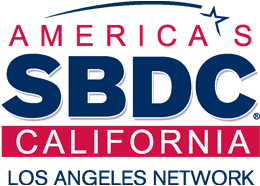November 5, 2011
Are you looking for a way to cut costs and increase profits in your business? The principles of Lean manufacturing can help—even if you’re not a manufacturer.
What is Lean manufacturing?
Lean manufacturing is the process of identifying work that doesn’t add value—also known as “waste”—and removing that waste. “There are seven basic types of waste, whether in manufacturing or nonmanufacturing,” says SBDC Business Advisor Dean Dela Cruz. “These are overproduction, motion, waiting, defects, inventory, overprocessing and transportation.” The ultimate goal of eliminating waste (or muda, in Japanese) is to add value for the customer.
What are the key principles of Lean manufacturing?
“Identify waste, eliminate it, and repeat the process,” says SBDC Business Advisor Carlos Conejo. Since this process is never complete, continuous improvement is also an important Lean principle.
 How and when did the concept of Lean manufacturing originate?
How and when did the concept of Lean manufacturing originate?
Conejo says the credit for this concept goes to W. Edwards Deming, known as the father of Modern Quality Management; Joseph M. Juran, the father of Total Quality Management; and Philip Crosby, developer of The Crosby Quality System. However, the concept can be traced back even further to Frederick Taylor. “In the 1890s Taylor began to [study] individual work methods,” says Dela Cruz. “In 1910 Henry Ford, considered by many to be the first practitioner of Lean manufacturing, laid the foundations [of Lean with] the assembly line system of automobile manufacturing.”
How can Lean manufacturing help a small company?
In an increasingly competitive global environment, “Lean manufacturing can improve productivity, lower production costs and [help small companies] gain a competitive advantage,” Dela Cruz says.
Do you have to be a manufacturer to benefit?
Dela Cruz and Conejo say industries as diverse as retail, health care, insurance, government, financial services, software development and even the U.S. military profit from Lean principles. “Any business can look at their own processes and ask questions like, ‘Why does it take so long to close the books at the end of the month?’ or ‘Why does it take so long for customers to go through the checkout line?’ “ Dela Cruz explains. “As they start to identify waste, they can simplify work, remove bottlenecks and eliminate wasted effort.”
How do you get started implementing Lean principles in your business?
“I strongly recommend a Lean readiness assessment to start,” says Dela Cruz. “Then set a clear direction, get Lean training, identify and prioritize projects, conduct improvement events, keep track of progress and move on to the next project.”
What are some common mistakes businesses make in implementing Lean principles?
“Owners who are control freaks, thinking ‘This doesn’t apply to us’ or ‘It’s my company and I’ll decide what’s best’ are basically dooming the project to failure,” warns Conejo. “That approach may get short-term results, but lacks sustainability for long-term quantum growth.” To succeed, Conejo says, the process must involve all stakeholders in the business—from the CEO to entry-level employees and customers.
How soon can I expect results?
“Lean is a way of life, not a quick fix,” Dela Cruz emphasizes. Conejo agrees: “The Japanese spend 80 percent of their time analyzing the situation so that it is thoroughly understood by everyone. [Americans] are so results-oriented that we push, push, push [for quick action] and do not get the optimum results we desire.”
What special challenges do small businesses face in implementing Lean processes?
Lack of resources can be a hurdle, but not an insurmountable one. “I’ve seen [Lean] applied at a company of 20 where business stopped entirely for four hours a week to have everyone go through Lean training,” says Conejo. “After 10 weeks, the company went from $390,000 per month to $1.2 million per month in revenues. You’ve got to bite the bullet and understand that sometimes it takes time, or what may seem like a step backwards, to take a giant leap forward.”
Where can entrepreneurs learn more about Lean?
Lean Thinking by James Womack, Lean Manufacturing for the Small Shop by Gary Conner, Creating a Lean Culture by David Mann, and How to Implement Lean by Lonnie Wilson are among the books Dela Cruz recommends. Of course, your local SBDC can guide you as well. Whichever method you choose, you’ll find learning about Lean is worthwhile. “The principles of [Lean] work for companies big and small, and almost all industries,” says Dela Cruz. “The benefits for small companies can be eye-opening.”
Rieva Lesonsky is founder and President of GrowBiz Media, a media company that helps entrepreneurs start and grow their businesses. Before launching her business, she was Editorial Director of Entrepreneur Magazine. Follow Rieva at Twitter.com/Rieva, read her blog at SmallBizDaily.com, and visit her website SmallBizTrendCast.com to get the scoop on business trends and sign up for free TrendCast reports.





